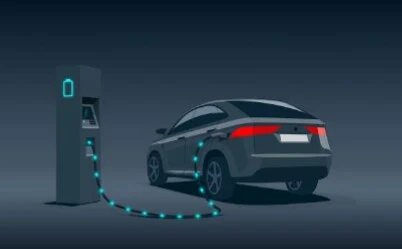Electric Vehicle
Introduction Vehicle Battery technology
The rapid growth of the electric vehicle (EV) market in recent years can largely be attributed to significant advancements in battery technology.
Electric vehicle batteries have undergone remarkable improvements, both in terms of energy density and affordability.
This article explores the evolution of EV battery , highlighting its benefits, current challenges, and future prospects in revolutionizing the automotive industry.
Advancements in Electric Vehicle Battery Technology
| Feature | Advancements |
|---|---|
| Energy Density | Higher energy density for longer driving ranges. |
| Charging Speed | Faster charging times for reduced charging durations. |
| Safety | Improved safety features to prevent thermal runaway and battery fires. |
| Lifespan | Longer battery life and fewer degradation cycles. |
| Cost | Reduced manufacturing costs for increased affordability. |
| Sustainability | Use of sustainable materials and recycling initiatives. |
| Thermal Management | Efficient thermal management systems to optimize battery performance. |
| Solid-State Batteries | Development of solid-state batteries for improved energy density and safety. |
| Silicon Anodes | Integration of silicon anodes for higher energy storage capacity. |
| Battery Management Systems | Advanced battery management systems for improved performance and longevity. |
EV battery technology
The Rise of Lithium-ion Batteries
Lithium-ion (Li-ion) batteries have become the standard power source for electric vehicles, replacing older battery chemistries such as lead-acid and nickel-metal hydride (NiMH). Li-ion batteries offer several advantages, including higher energy density, longer life cycles, and reduced weight. These attributes have helped overcome the limitations of early EVs, such as limited range and lengthy charging times.
Enhancing Energy Density
One of the key objectives in EV battery research is increasing energy density. Higher energy density means more energy can be stored in the same physical space, allowing for longer driving ranges. In recent years, significant progress has been made in improving energy density through advancements in battery chemistry and design.
Researchers are exploring various approaches, such as developing new electrode materials and optimizing cell structures. Materials like lithium nickel manganese cobalt oxide (NMC), lithium iron phosphate (LFP), and lithium nickel cobalt aluminum oxide (NCA) offer improved energy density and thermal stability. Additionally, silicon anodes and solid-state electrolytes are emerging as potential breakthroughs for further enhancing energy density.
Extending Battery Life and Durability
Battery life and durability are crucial factors in the adoption of electric vehicles. Manufacturers are continuously working to enhance battery longevity and minimize degradation over time. Techniques like improved cell chemistry, thermal management systems, and advanced battery management systems (BMS) help optimize charging and discharging processes, ensuring better overall performance and extended battery life.
Charging Speed and Infrastructure
The charging speed and availability of charging infrastructure are essential considerations for EV adoption. Advancements in battery technology, combined with the expansion of fast-charging networks, have significantly reduced charging times. The introduction of high-power charging stations capable of delivering hundreds of kilowatts enables rapid charging, providing users with more convenience and reducing downtime during long trips.
Solid-State Batteries: The Next Frontier
Solid-state batteries are poised to be the next major breakthrough in EV battery technology. These batteries replace the liquid electrolyte found in traditional Li-ion batteries with a solid-state electrolyte, offering several advantages. Solid-state batteries are safer, as they are less prone to thermal runaway and have a lower risk of fire. They also have higher energy density potential and faster charging capabilities.
Although solid-state batteries are still in the research and development phase, significant progress has been made. Several companies and research institutions are actively working to overcome technical challenges and scale up production, aiming to commercialize solid-state batteries in the coming years.
Environmental Sustainability for Vehicles battery technology
Apart from powering electric vehicles, used EV batteries also present opportunities for environmental sustainability. After their useful life in vehicles, EV batteries can be repurposed for stationary energy storage applications, effectively extending their lifespan. Additionally, battery recycling programs are gaining traction to recover valuable materials such as lithium, cobalt, and nickel, reducing the environmental impact of battery production and disposal.
Future Prospects
The future of EV battery technology looks promising. As research and development continue, we can expect further improvements in energy density, charging speed, and durability. Increasing investments in battery manufacturing infrastructure will drive economies of scale, making EVs more affordable and accessible to a wider range of consumers. Furthermore, advancements in materials science and manufacturing techniques will contribute to reducing the reliance on critical raw materials and enhancing the overall sustainability of electric vehicles.
Advancements in Elrctric Vehicle battery technology
Here are the advancements in electric vehicle battery technology :
1. Energy Density: Battery technology has improved significantly, leading to higher energy density. Modern batteries can store more energy in the same physical space, resulting in longer driving ranges without increased weight.
2. Solid-State Batteries: Research and development have focused on solid-state batteries, which use solid electrolytes instead of liquid electrolytes. These batteries offer higher energy density, faster charging times, improved safety, and longer lifespan.
3. Fast Charging: Battery chemistry and thermal management improvements enable faster-charging capabilities. High-power charging stations have become more common, allowing EVs to add a significant range in a short time.
4. Longer Lifespan: Advancements in battery management systems and more durable electrode materials have extended the lifespan of modern EV batteries, addressing concerns about battery degradation over time.
5. Sustainability and Recycling: Battery materials have been developed with greater sustainability in mind, and recycling processes for used batteries have improved to reduce environmental impact.
6. Cost Reduction: As electric vehicle adoption increases, the cost of battery production has been declining, making EVs more affordable and competitive with internal combustion engine vehicles.
7. Second-Life Applications: Used EV batteries with reduced driving capacity can still serve secondary purposes, such as stationary energy storage for homes and businesses.
8. Innovative Chemistries: Researchers have explored alternative battery chemistries beyond traditional lithium-ion, such as lithium-sulfur and lithium-air, with the potential for higher energy densities and lower costs.
9. Wireless Charging: While still in early stages of development, wireless charging technology for EVs has been explored, potentially enabling charging without the need for physical cables.
10. Hybrid Energy Storage Systems: Some manufacturers integrate hybrid energy storage systems, combining lithium-ion batteries with ultra capacitors to provide high power output and improve regenerative braking efficiency.
Global Outlook Vehicle battery technology
Electric vehicle battery technology has witnessed remarkable advancements in recent years, revolutionizing the automotive industry.
Lithium-ion batteries have become the go-to power source for electric vehicles, offering higher energy density, longer life cycles, and reduced weight compared to previous battery chemistries.
The continuous pursuit of higher energy density has resulted in the development of new electrode materials and optimized cell structures. Materials like NMC, LFP, and NCA, coupled with innovations in battery chemistry and design, have significantly increased the driving range of electric vehicles. Ongoing research into silicon anodes and solid-state electrolytes holds the promise of further enhancing energy density and improving overall performance.
Battery life and durability have also seen improvements through advancements in cell chemistry, thermal management systems, and battery management systems (BMS). These technologies optimize charging and discharging processes, ensuring that batteries last longer and perform consistently over time.
Charging infrastructure has expanded rapidly, enabling faster charging speeds and reducing charging times. High-power charging stations have emerged, offering rapid charging capabilities and enhancing the convenience of owning an electric vehicle.
Looking ahead, solid-state batteries represent the next frontier in EV battery technology. These batteries, with their solid electrolytes, offer increased safety, higher energy density potential, and faster charging speeds. Although still in the research and development phase, solid-state batteries show great promise and could be a game-changer in the industry.
Environmental sustainability is a key consideration in the evolution of EV battery technology.
The repurposing of used EV batteries for stationary energy storage applications prolongs their useful life and reduces waste. Battery recycling programs are also gaining momentum, recovering valuable materials and minimizing the environmental impact of battery production and disposal.
The future prospects of EV battery technology are bright. Continued research and development efforts, coupled with increased investments in battery manufacturing infrastructure, will drive advancements in energy density, charging speed, and affordability. As economies of scale are achieved, the cost of electric vehicles will continue to decline, making them more accessible to a broader range of consumers.
Furthermore, ongoing advancements in materials science and manufacturing techniques will reduce the reliance on critical raw materials and improve the overall sustainability of electric vehicles. This, combined with the potential commercialization of solid-state batteries, will contribute to a greener, more sustainable transportation landscape.
Conclusion Vehicle battery technology
The advancements in electric vehicle battery technology have revolutionized the automotive industry.
Lithium-ion batteries have provided higher energy density, longer life cycles, and reduced weight, making electric vehicles more practical and appealing to consumers.
Continued research, innovation, and investments will drive further improvements, ensuring a future where electric vehicles are the norm, offering a sustainable and environmentally friendly mode of transportation for all.


